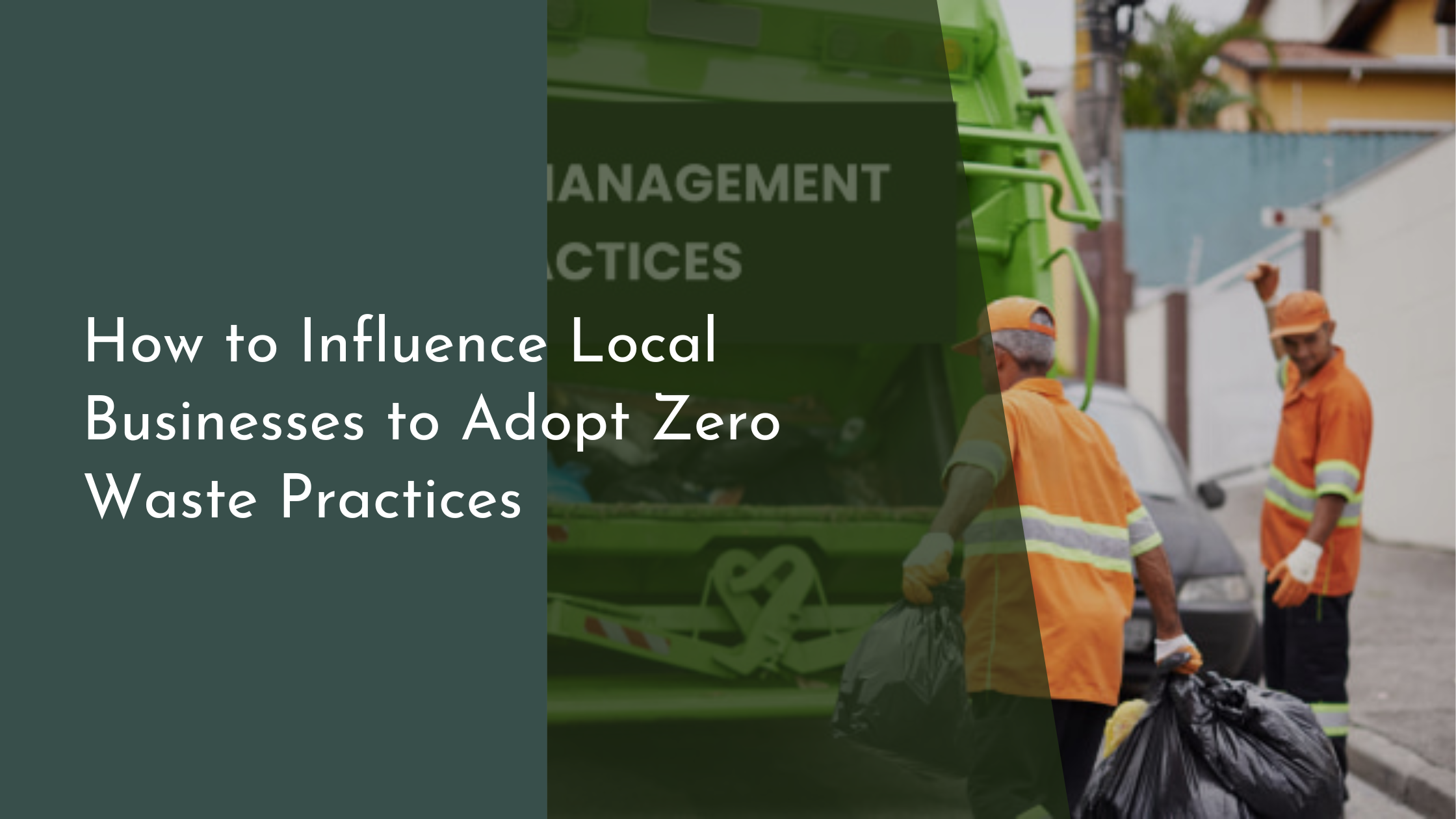How to Influence Local Businesses to Adopt Zero Waste Practices
In an era where environmental sustainability is becoming increasingly crucial, adopting zero waste practices has emerged as a key strategy for businesses striving to reduce their ecological footprint. However, the path to zero waste is not always straightforward, especially for local businesses that may lack the resources or knowledge needed to make this transition. This article offers a comprehensive guide on how to encourage and assist local businesses in adopting zero waste practices, emphasizing understanding, partnership building, effective communication, and the provision of resources and support.
Understanding Zero Waste: A Brief Overview
Zero waste is a philosophy that encourages the redesign of resource life cycles so that all products are reused, with the ultimate goal of no trash being sent to landfills, incinerators, or the ocean. Emphasizing the “5 Rs”—refuse, reduce, reuse, recycle, and rot—zero waste aims to promote a circular economy where materials are kept in use for as long as possible. Understanding this concept is crucial for local businesses, as it not only aligns with environmental responsibility but can also lead to cost savings and increased consumer appeal.
For local businesses, transitioning to zero waste can initially seem daunting. However, breaking it down into manageable steps can help make the process more approachable. Businesses can start by conducting waste audits to understand their current waste generation patterns. This data can then inform the creation of a tailored zero waste strategy that targets specific areas for improvement, such as reducing single-use plastics, improving recycling protocols, or establishing composting programs. By understanding the fundamental principles of zero waste, businesses can align their practices with sustainable development goals, thereby improving their ecological footprint and brand image.
Building Partnerships with Local Businesses
Forming partnerships with local businesses is an effective strategy for fostering a community-wide adoption of zero waste practices. By working together, businesses can share knowledge, resources, and motivation, making the transition more feasible for everyone involved. Such partnerships can also create a supportive network that encourages accountability and continuous improvement. Engaging with local chambers of commerce, business associations, and environmental groups can help identify potential collaborators and establish a united front for sustainability efforts.
Collaborations can take various forms, such as joint marketing initiatives that promote zero waste efforts to the community or the creation of a shared resource pool where businesses can access bulk purchasing or recycling services. Hosting workshops and seminars can also provide a platform for businesses to exchange ideas and best practices. By building a network of like-minded businesses, local enterprises can not only enhance their sustainability efforts but also strengthen community ties and create a local culture that values and practices environmental stewardship.
Effective Communication Strategies for Change
Communication is key to influencing local businesses to adopt zero waste practices. Tailoring messages to highlight the tangible benefits of zero waste, such as cost reductions, improved brand reputation, and customer satisfaction, can motivate businesses to embrace change. It’s essential to use positive and encouraging language that emphasizes how zero waste aligns with business goals rather than presenting it as an obligation. Storytelling can also be a powerful tool—sharing success stories from businesses that have successfully implemented zero waste practices can provide inspiration and offer practical insights.
Another effective communication strategy is to organize informational sessions or webinars that address common concerns and misconceptions about zero waste. These sessions can provide businesses with a platform to ask questions, voice hesitations, and receive personalized advice. Additionally, employing visual aids, such as infographics and case studies, can help simplify complex information and clearly demonstrate the impact and feasibility of zero waste initiatives. By fostering open dialogue and providing clear, relatable information, advocates can facilitate a smoother transition for businesses considering zero waste practices.
Providing Resources and Ongoing Support
Providing resources and ongoing support is crucial for helping local businesses successfully transition to zero waste. Offering toolkits, guides, and templates that outline step-by-step processes for waste reduction can empower businesses with the confidence to begin their journey. Financial resources, such as grants or subsidies for waste management services, can also alleviate some of the cost barriers associated with implementing zero waste practices.
Beyond initial resources, offering ongoing support is vital to ensure sustained progress. This could involve setting up a mentorship program where businesses that have successfully adopted zero waste practices guide others through the process. Regular check-ins, feedback sessions, and progress assessments can help businesses stay on track and address challenges as they arise. By providing a robust support system, local businesses are more likely to maintain their zero waste efforts and contribute to a sustainable community.
Transforming local businesses into champions of zero waste practices is a rewarding endeavor that benefits both the environment and the local economy. Through understanding the principles of zero waste, building strategic partnerships, employing effective communication strategies, and offering resources and ongoing support, communities can inspire change and create a ripple effect of sustainability. As businesses embrace zero waste, they not only contribute to a healthier planet but also enhance their own operational efficiencies and community connections, paving the way for a more sustainable future for all.

